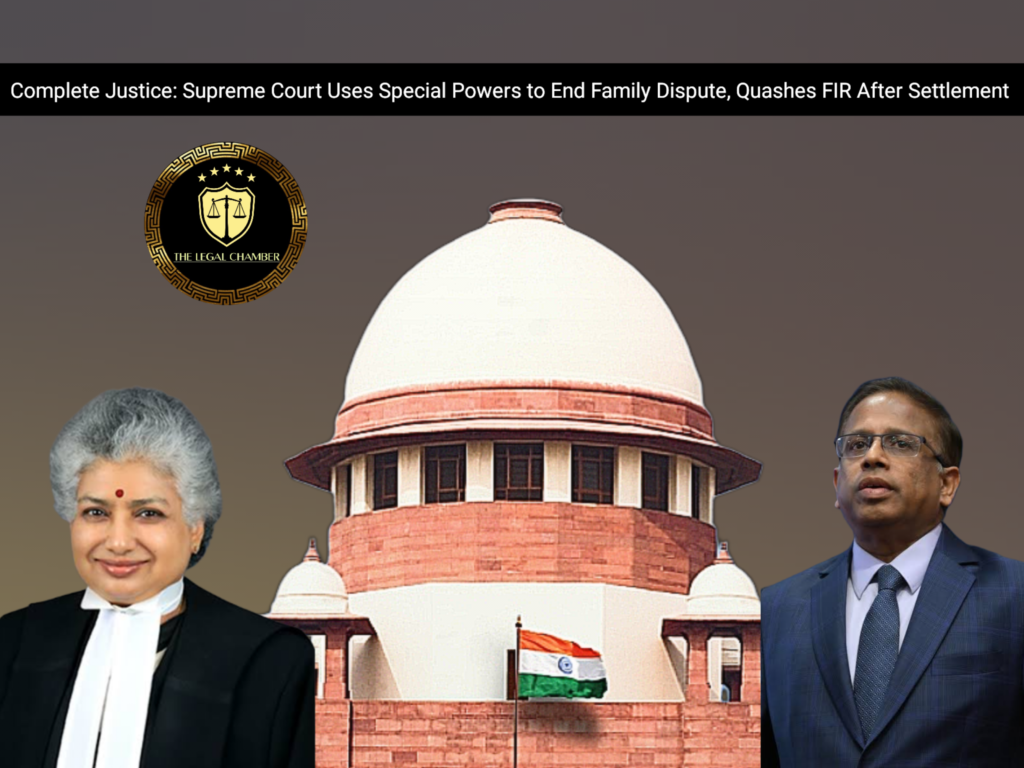
The Supreme Court, invoking its powers under Article 142 of the Constitution, quashed the criminal proceedings. It held that continuing prosecution after a mutual divorce and full settlement serves no legitimate purpose and amounts to an abuse of the process of law, especially in the absence of specific allegations.
Facts Of The Case:
The case originated from an FIR (No.67 of 2019) registered by the second respondent against her husband (appellant No.1) and in-laws (appellant Nos. 2 & 3) under Sections 323, 406, 498-A, and 506 of the IPC, alleging cruelty, criminal breach of trust, and criminal intimidation. The marriage, solemnized in March 2018, lasted approximately ten months before the wife left the matrimonial home. Subsequently, a chargesheet was filed in November 2019. However, the parties later obtained a decree of divorce by mutual consent from the Family Court in January 2024. Following this settlement, all other pending proceedings between them were withdrawn. The appellants then approached the Punjab and Haryana High Court under Section 482 of the CrPC, seeking to quash the FIR and subsequent proceedings. The second respondent expressly stated she had no objection to the quashing. Despite this, the High Court dismissed the petition, noting that allegations concerning the victimization of the wife’s child from a previous marriage were substantiated. This dismissal led the appellants to appeal to the Supreme Court.
Procedural History:
The procedural history began with the registration of FIR No.67 of 2019 at Police Station Radaur, leading to the filing of a chargesheet by the police on November 7, 2019, before the Judicial Magistrate First Class, Jagadhri. Seeking to terminate these proceedings, the appellants filed a petition under Section 482 of the Code of Criminal Procedure, 1973, before the High Court of Punjab and Haryana (CRM-M No.6635 of 2024). This petition was dismissed by the High Court vide its order dated August 1, 2024. The appellants then pursued and were granted special leave to appeal by the Supreme Court of India (Special Leave Petition (Criminal) No.16217 of 2024), which culminated in the present criminal appeal and the impugned judgment.
READ ALSO:No Grace Marks: Supreme Court Shuts Down Plea from UP Lekhpal Candidates After Answer Key Change
Court Observation:
In its observations, the Court noted the recurring tendency to unnecessarily implicate all family members of the husband in matrimonial disputes, emphasizing that criminal law should not be used as an instrument of harassment. It observed that the marital relationship had conclusively ended by a decree of divorce by mutual consent which had attained finality, and a full and final settlement had been reached, with all other cases withdrawn and the complainant-wife having no objection to quashing. The Court held that continuing prosecution in such circumstances, especially absent specific and proximate allegations, serves no legitimate purpose and amounts to an abuse of the process of law. It further opined that invoking its extraordinary power under Article 142 of the Constitution was essential to do complete justice between the parties, bring quietus to the dispute, and prevent the perpetuation of bitterness.
Final Decision & Judgement:
Download The Judgement Here